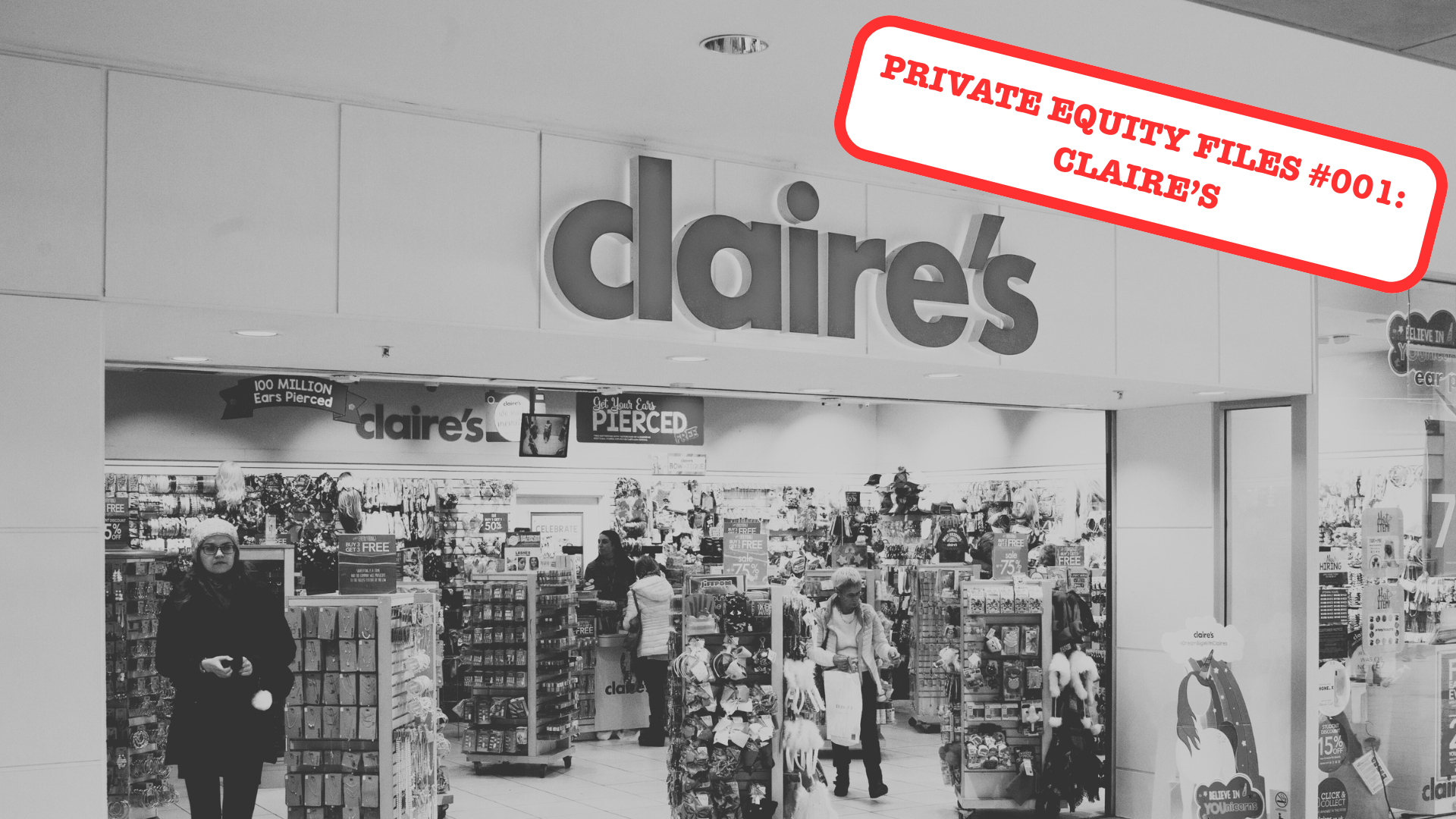
PE Files #001: How the PE playbook pierced Claire’s
September 15, 2025
PE Files #001: Claire’s
PESP’s PE Files take a look at how portfolio companies are impacted by the private equity playbook, from beloved businesses bankrupted to mass layoffs at formerly mom-and-pop operations.
WHO: Claire’s; private equity firms Apollo Global Capital, Elliott Investment Management, Monarch Alternative Capital, Ames Watson; devastated American millennials mourning their childhood
WHAT: Last month, tween jewelry retailer Claire’s filed for bankruptcy protection for the second time. The popular store has had a relatively long history with private equity: in 2007, Apollo Global Capital purchased Claire’s for $3.1 billion in a leveraged buyout, loading the retailer with $2.5 billion of debt per 2013 filings[1] related to the company’s first failed IPO attempt. Eleven years later, Claire’s filed for bankruptcy for the first time as it struggled under $2.1 billion in long-term debt. The restructuring that followed passed the company into the hands of creditors and private equity firms Elliott Investment Management and Monarch Alternative Capital. By the time Claire’s declared bankruptcy again, the retailer had over $1 billion in liabilities, according to bankruptcy filings. As the store initiated liquidation of its assets, private equity firm Ames Watson agreed to acquire Claire’s and keep the majority of its stores open.
WHERE: Claire’s operates over 1000 stores with at least 17,300 employees across the U.S. and Canada
WHY: The throughline in this story is debt, debt, and more debt. Like Joann’s, Red Lobster, Bed Bath & Beyond, and other private equity-owned retailers that went bankrupt, Claire’s appears to have been unable to bear the load of the significant amount of debt first incurred by Apollo’s leveraged buyout. Leveraged buyouts, a strategy in which a private equity firm finances its acquisition of a company using debt secured by the company it is acquiring rather than using its capital or taking on the debt itself, have been a critical driver of instability among PE-owned companies. This tactic saddles private equity-owned companies with substantial debt, often draining resources that could otherwise be invested in innovation, workforce development, or adapting to market changes. Instead, firms under private equity ownership must channel much of their revenue toward servicing this debt, leaving them vulnerable to financial distress and bankruptcy.
Coupled with the continued decline of brick-and-mortar retailers and instability introduced by the Trump tariffs, it’s no surprise that Claire’s filed for bankruptcy once again.
SO WHAT? Without guaranteed severance legislation in the United States, employees facing layoffs as a result of corporate bankruptcy are forced to rely on taxpayer-funded unemployment. Meanwhile, private equity firms are able to walk away scot-free from portfolio company bankruptcies with few consequences. Another beloved brand bites the dust, another private equity firm walks away unscathed and enriched. Luckily for Claire’s, new owner Ames Watson appears to have forestalled the worst for many of its employees.
On a less serious note, the near-miss of a total Claire’s liquidation pained the hearts of many a millennial who had once anxiously received their first piercing at Claire’s from the iconic (and pretty gross) piercing gun.
WHAT’S NEXT? Private equity firm Ames Watson has agreed to acquire Claire’s in a $140 million deal, keeping many of its stores open and Claire’s staff employed. Here’s hoping the new firm doesn’t follow the path of its other private equity predecessors.
[1] Per SEC filings, Apollo made an equity investment of approximately $595.7 million.
